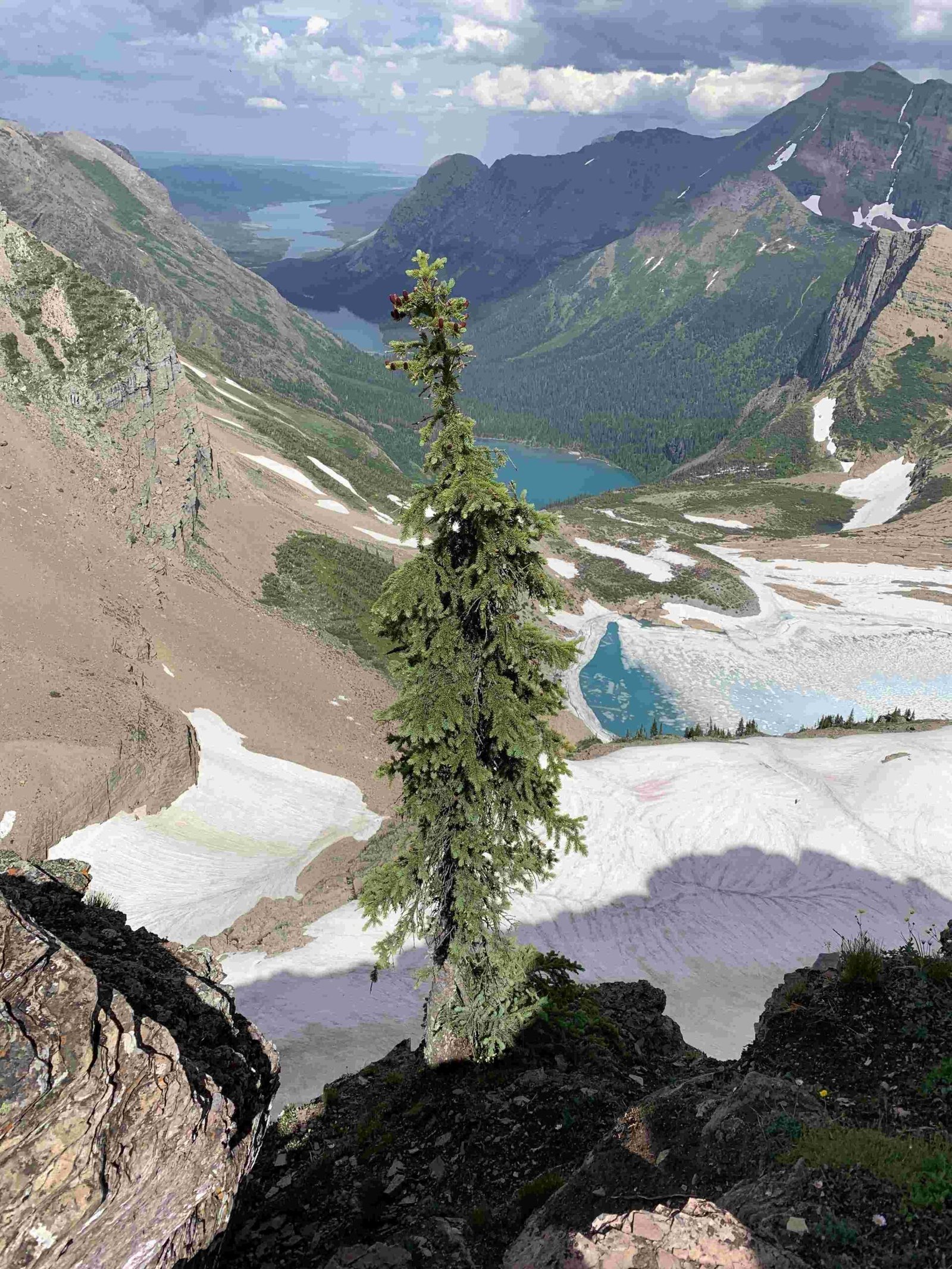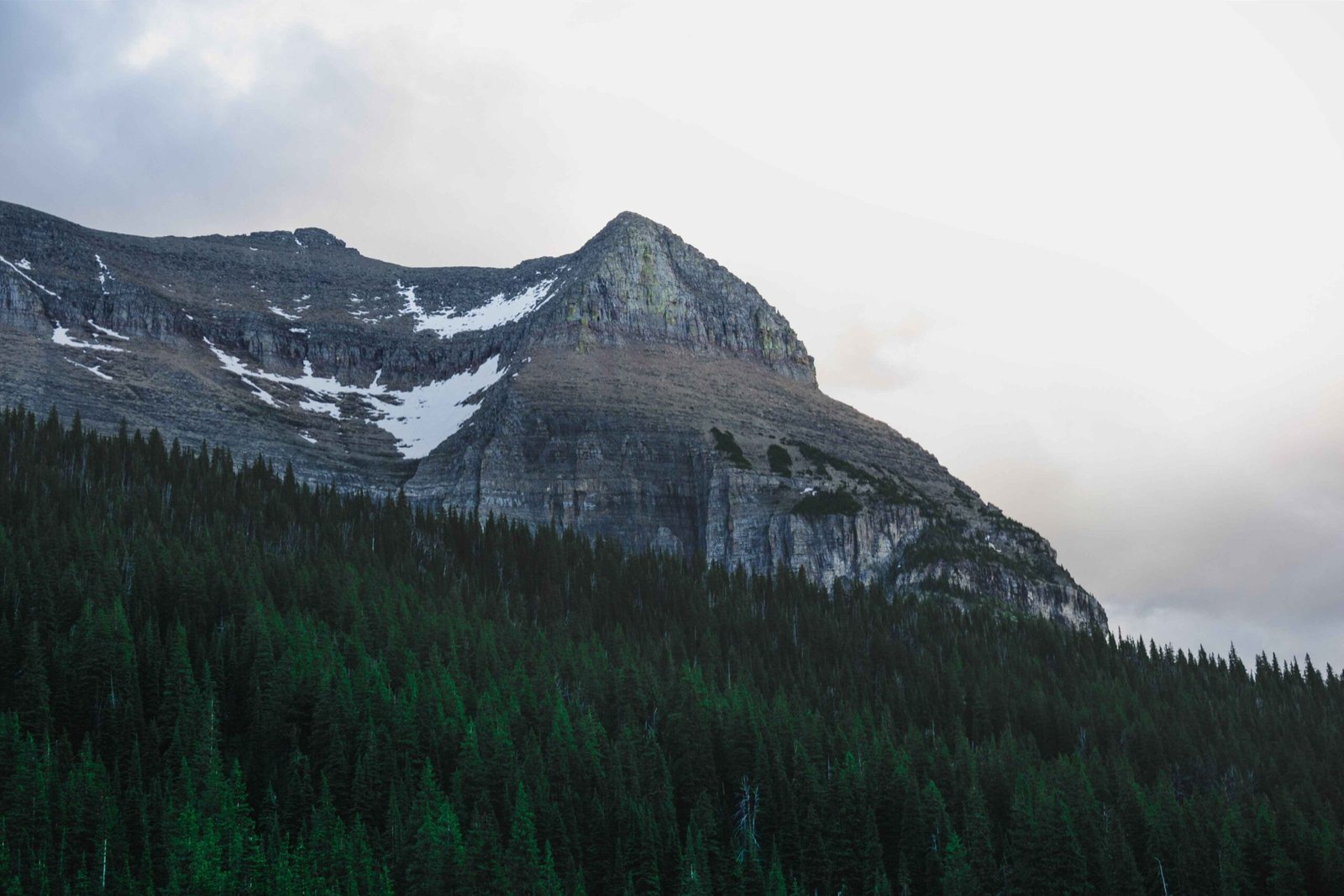Glacier National Park, straddling the border between the United States and Canada, offers a breathtaking expanse of pristine wilderness, rugged mountains, and diverse ecosystems. The park is divided into two distinct sections: the US side in Montana and the Canadian side in British Columbia. Both areas boast unique features, hiking trails, and wildlife viewing opportunities, making them popular destinations for nature enthusiasts and adventure seekers alike.
What Are the Key Differences Between the US and Canadian Sides of Glacier National Park?

The US side of Glacier National Park, located in Montana, is known for its iconic Going-to-the-Sun Road, extensive trail system, and diverse landscapes. The Canadian side, officially called Waterton Lakes National Park, is smaller but equally stunning, featuring unique geological formations and a more intimate experience with nature.
US Side (Glacier National Park, Montana)
What Are the Most Popular Hiking Trails on the US Side?
- Avalanche Lake Trail
- Length: 4.5 to 6 miles roundtrip
- Elevation Gain: 730 to 757 feet
- Difficulty: Easy to Moderate
-
Notable Features: Hemlock and cedar forests, Avalanche Lake, seasonal waterfall
-
Highline Trail
- Length: 11 miles (point to point)
- Elevation Gain: 1,550 feet
- Difficulty: Moderate to Hard
-
Notable Features: Garden Wall, Continental Divide views, optional Grinnell Glacier Overlook
-
Hidden Lake Trail
- Length: 2.9 to 5.3 miles roundtrip
- Elevation Gain: 1,325 feet
- Difficulty: Easy to Moderate
-
Notable Features: Hidden Lake Overlook, wildflowers, potential wildlife sightings
-
Iceberg Lake Trail
- Length: 9.3 miles roundtrip
- Elevation Gain: 1,275 feet
- Difficulty: Moderate
- Notable Features: Turquoise Iceberg Lake, alpine meadows, scenic views
What Are the Entrance Fees for the US Side?
| Pass Type | Duration | Cost |
|---|---|---|
| Private Vehicle | 7 days | $35 |
| Individual/Bicycle | 7 days | $20 |
| Motorcycle | 7 days | $30 |
| Annual Pass | 1 year | $70 |
| America the Beautiful Annual Pass | 1 year | $80 |
Free entry days typically include Martin Luther King Jr. Day, the first day of National Park Week, National Public Lands Day, and Veterans Day.
Where Are the Best Locations for Wildlife Viewing on the US Side?
- Logan Pass: Known for grizzly bears, mountain goats, and bighorn sheep
- Going-to-the-Sun Road: Frequent sightings of elk, moose, and deer
Best times for wildlife viewing are early morning and late evening. Always maintain a safe distance from wildlife (at least 100 yards for bears and wolves, 25 yards for other animals) and follow park guidelines for safe viewing.
What Is the Most Scenic Drive on the US Side?
The Going-to-the-Sun Road is the crown jewel of scenic drives in Glacier National Park.
- Length: 53 miles
- Key Viewpoints: Logan Pass, Bird Woman Falls, Weeping Wall, Jackson Glacier Overlook
- Road Conditions: Typically open from late June to early October, weather dependent
- Seasonal Accessibility: Closed during winter months due to heavy snowfall
- Fees: No additional fee beyond the park entrance fee
Canadian Side (Waterton Lakes National Park, Alberta)
What Are the Popular Hiking Trails on the Canadian Side?
- Hermit Trail
- Currently closed for danger tree removal (as of September 24, 2024)
-
Known for scenic views
-
Abbot Ridge
- Length: 6.8 km (4.2 miles) one way
- Elevation Gain: 1029 meters (3379 feet)
- Difficulty: Difficult
-
Notable Features: Sweeping views of Glacier National Park, subalpine forest, meadows
-
Asulkan Valley Trail
- Length: Varies, first 4 km is a gentle walk
- Difficulty: Easy to Moderate
-
Notable Features: Creek views, waterfalls, forests, mountain peaks
-
Mount Sir Donald
- Elevation Gain: 915 meters (3002 feet)
- Difficulty: Strenuous
- Notable Features: Valley views, summit of Mount Sir Donald
- Note: Check trail accessibility with Parks Canada before attempting
What Are the Entrance Fees for the Canadian Side?
| Pass Type | Adult | Senior | Youth (13-17) | Family/Group |
|---|---|---|---|---|
| Daily Pass | $10.50 | $8.30 | $5.30 | $21 |
| Discovery Pass (Annual) | $72.25 | $61.75 | $36.40 | $145.25 |
Children under 12 years old and holders of certain passes like the Discovery Pass enjoy free entry.
Where Are the Best Locations for Wildlife Viewing on the Canadian Side?
Glacier National Park in Canada is home to wolves, cougars, grizzly bears, and black bears. Areas around trails and campgrounds are common spots for sightings. As with the US side, early morning and late evening are optimal for wildlife viewing. Always follow park regulations, maintain a safe distance from wildlife, and take necessary precautions such as carrying bear spray.
How Can Visitors Make the Most of Their Glacier National Park Experience?

- Plan Ahead: Research trail conditions, weather forecasts, and park regulations before your visit.
- Stay Safe: Carry bear spray, hike in groups, and make noise to avoid surprising wildlife.
- Respect Nature: Follow Leave No Trace principles to preserve the park’s pristine environment.
- Explore Both Sides: If time allows, visit both the US and Canadian sides for a comprehensive experience.
- Timing is Key: Visit during shoulder seasons (late spring or early fall) for fewer crowds and pleasant weather.
- Capture Memories: Bring a camera to document the stunning landscapes and wildlife encounters.
- Engage with Rangers: Attend ranger-led programs to deepen your understanding of the park’s ecology and history.
By following these tips and exploring the diverse offerings of both the US and Canadian sides of Glacier National Park, visitors can create unforgettable memories in one of North America’s most spectacular natural settings.
References:
– https://wheatlesswanderlust.com/best-hikes-glacier-national-park/
– https://theeagertraveler.com/hiking-glacier-national-park/
– https://www.erinexploring.com/blog/glacier-national-park-west-side